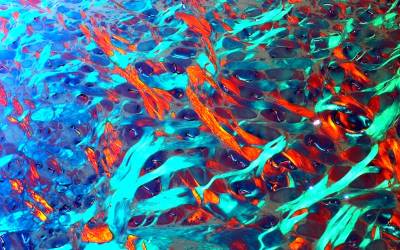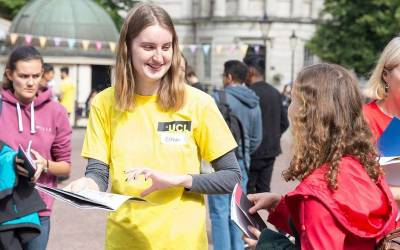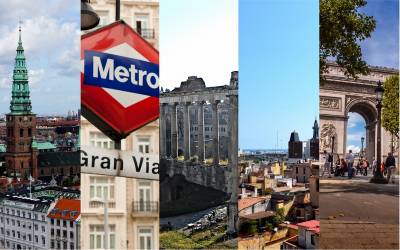Innovation for good
“Anyone who's interested in shaping the future wants to work with enthusiastic partners. Europe is still the place you'll find the most appetite for experimenting on the frontiers.”– Sir Geoff Mulgan

28 April 2021
At the heart of a Venn diagram of science, innovation and public policy, you’ll find the work of Sir Geoff Mulgan CBE, UCL’s Professor of Collective Intelligence, Public Policy and Social Innovation. As a former head of policy for Tony Blair’s government, director of the Demos think-tank and CEO of both Nesta and the Young Foundation, his key motivation is to understand evolving technologies and determine how they can be used to solve social problems, not just to make money. It’s work that benefits greatly from European collaboration.
““You want to learn from whoever is doing things best in the world,” says Sir Geoff. “And Europe is amongst the best at many many things, certainly anything in relation to public policy, science, technology, environment or health. Plus, the EU is a big funder of science and technology and has become the rule setter in fields such as data and artificial intelligence, so if you're interested in those fields then you have to get engaged with Europe or you become marginal.”
In February 2020, Sir Geoff joined UCL’s STEaPP department in his current role, intending to link his myriad projects in mainland Europe to brand new research avenues. The pandemic has put some work on hold, however, his continental links remain strong. He is currently working with Demos Helsinki, looking into societal issues around climate change. And he is involved with the New Institute in Hamburg, which brings together world-leading academics, artists and activists, dedicated to achieving a zero-carbon world.
He is also now a member of the International Advisory Board of the European Parliament's Science and Technology Options Assessment Panel (STOA). “STOA covers all sorts of things from agricultural science to fusion technologies,” says Sir Geoff. “But one of the topics they're really focussing on is artificial intelligence because that is so important for every sector. It’s very interesting to be part of that process, almost setting the ‘rules of the game’ for a transformative set of technologies.”
In December, the International Public Policy Observatory on COVID was launched. Based at UCL, with Sir Geoff as co-lead, it aims to distil what we can learn from international reactions to the pandemic – and how these have affected education, mental health and more. “This is, in a way, the next-generation model of how to organise in a very rapid, agile way,” he explains. “It’s evidence for decision-makers at every level. And we're trying to persuade Europe that it needs equivalents of this in many other fields, from integration of refugees to climate change to care for the elderly.”
Despite recent events, Sir Geoff has a positive outlook on European relations, both in broad UK terms, and from a UCL perspective. “I have absolute certainty that despite Brexit, the UK and London's links to the EU are likely to deepen, not wane,” he says. “Indeed, almost everything in the sciences and social sciences is becoming more collaborative, and if you look at the last 12 months, what happened around COVID, the density of networks collaborating in science were quite remarkable - whether on treatments or vaccinations or policy responses.”
UCL enjoys a vast breadth of activity on and with Europe, from research collaborations and partnerships to dual degrees and joint appointments. Sir Geoff believes these symbiotic relationships will be key to successful future projects.
“He says: “If I had to bet, I would say that UCL's European connections will be even stronger in 10 years time than they are now. UCL - and other UK universities - are very strong globally, so there are clear incentives for the rest of Europe to want to collaborate. And the advantage of living in the era of the internet is that you can create very dynamic networks which learn and think and experiment far more efficiently than was possible a generation ago. It would be crazy not to learn from each other.”
 Close
Close




